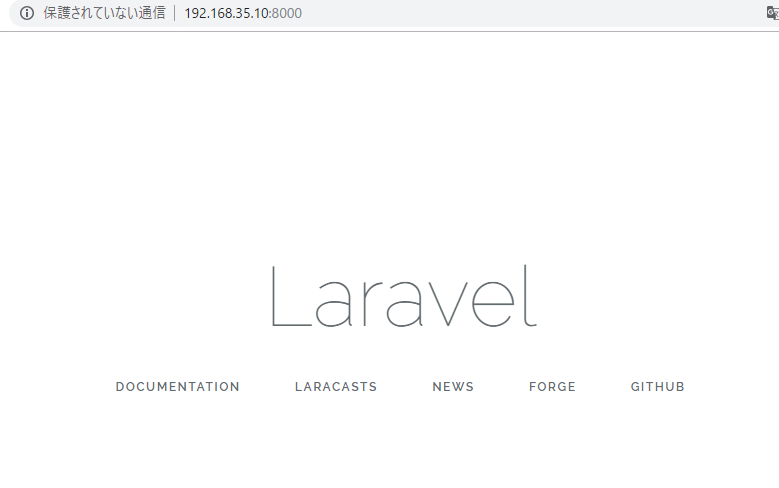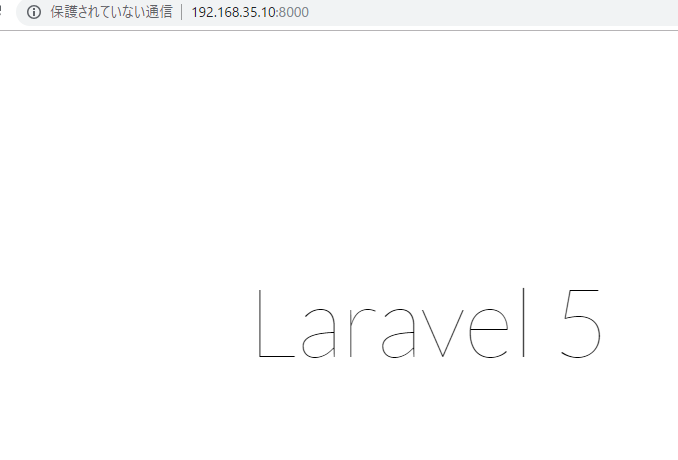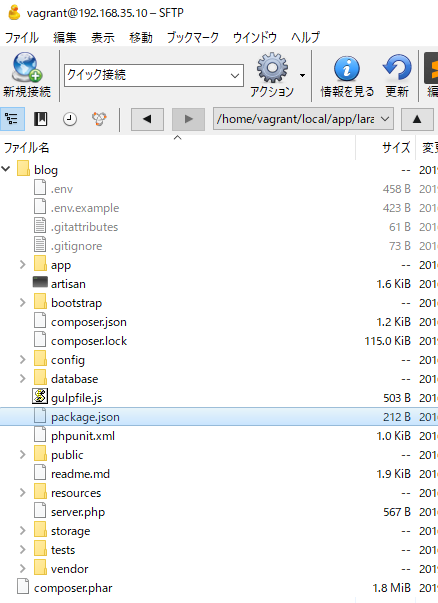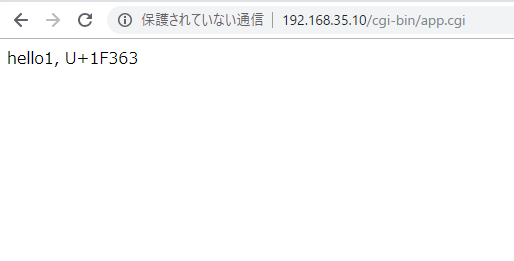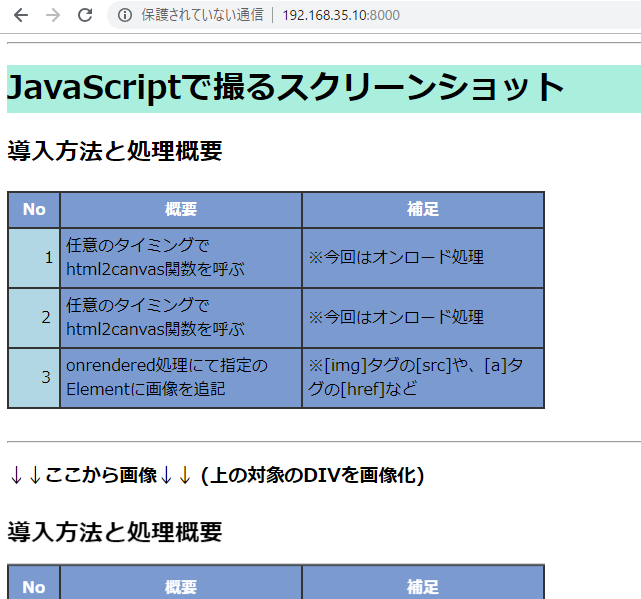まず、composer.jsonを見てみます。
{
"name": "laravel/laravel",
"description": "The Laravel Framework.",
"keywords": ["framework", "laravel"],
"license": "MIT",
"type": "project",
"require": {
"php": ">=5.5.9",
"laravel/framework": "5.2.*"
},
"require-dev": {
"fzaninotto/faker": "~1.4",
"mockery/mockery": "0.9.*",
"phpunit/phpunit": "~4.0",
"symfony/css-selector": "2.8.*|3.0.*",
"symfony/dom-crawler": "2.8.*|3.0.*"
},
"autoload": {
"classmap": [
"database"
],
"psr-4": {
"App\\": "app/"
}
},
"autoload-dev": {
"classmap": [
"tests/TestCase.php"
]
},
"scripts": {
"post-root-package-install": [
"php -r \"copy('.env.example', '.env');\""
],
"post-create-project-cmd": [
"php artisan key:generate"
],
"post-install-cmd": [
"Illuminate\\Foundation\\ComposerScripts::postInstall",
"php artisan optimize"
],
"post-update-cmd": [
"Illuminate\\Foundation\\ComposerScripts::postUpdate",
"php artisan optimize"
]
},
"config": {
"preferred-install": "dist"
}
}
以下を修正します。
“laravel/framework”: “5.3.*”
“symfony/css-selector”: “2.8.*|3.1.*”,
“symfony/dom-crawler”: “2.8.*|3.1.*”
updateします。
[vagrant@localhost blog]$ php composer.phar update
Loading composer repositories with package information
Updating dependencies (including require-dev)
Package operations: 1 install, 15 updates, 0 removals
– Updating symfony/var-dumper (v3.0.9 => v3.1.10): Downloading (100%)
– Updating symfony/translation (v3.0.9 => v3.1.10): Downloading (100%)
– Updating symfony/routing (v3.0.9 => v3.1.10): Downloading (100%)
– Updating symfony/process (v3.0.9 => v3.1.10): Downloading (100%)
– Updating symfony/debug (v3.0.9 => v3.1.10): Downloading (100%)
– Updating paragonie/random_compat (v1.4.3 => v2.0.18): Downloading (100%) – Updating symfony/http-foundation (v3.0.9 => v3.1.10): Downloading (100%) – Updating symfony/http-kernel (v3.0.9 => v3.1.10): Downloading (100%)
– Updating symfony/finder (v3.0.9 => v3.1.10): Downloading (100%)
– Updating symfony/console (v3.0.9 => v3.1.10): Downloading (100%)
– Installing ramsey/uuid (3.8.0): Loading from cache
– Updating nikic/php-parser (v2.1.1 => v3.1.5): Downloading (100%)
– Updating psy/psysh (v0.7.2 => v0.8.18): Downloading (100%)
– Updating laravel/framework (v5.2.45 => v5.3.31): Downloading (100%)
– Updating symfony/css-selector (v3.0.9 => v3.1.10): Downloading (100%)
– Updating symfony/dom-crawler (v3.0.9 => v3.1.10): Downloading (100%)
ramsey/uuid suggests installing ircmaxell/random-lib (Provides RandomLib for use with the RandomLibAdapter)
ramsey/uuid suggests installing ext-libsodium (Provides the PECL libsodium extension for use with the SodiumRandomGenerator)
ramsey/uuid suggests installing ext-uuid (Provides the PECL UUID extension for use with the PeclUuidTimeGenerator and PeclUuidRandomGenerator)
ramsey/uuid suggests installing moontoast/math (Provides support for converting UUID to 128-bit integer (in string form).)
ramsey/uuid suggests installing ramsey/uuid-doctrine (Allows the use of Ramsey\Uuid\Uuid as Doctrine field type.)
ramsey/uuid suggests installing ramsey/uuid-console (A console application for generating UUIDs with ramsey/uuid)
Package phpunit/phpunit-mock-objects is abandoned, you should avoid using it. No replacement was suggested.
Writing lock file
Generating autoload files
> Illuminate\Foundation\ComposerScripts::postUpdate
> php artisan optimize
[ErrorException]
Declaration of App\Providers\EventServiceProvider::boot(Illuminate\Contracts\Events\Dispatcher $events) should be compatible with Illuminate\Foundation\Support\Providers\EventServiceProvider::boot()
Script php artisan optimize handling the post-update-cmd event returned with error code 1
なにいいいいいいいいいいいいいいいいいいいいいいいい
app/Providers/AuthServiceProvider.php
app/Providers/EventServiceProvider.php
app/Providers/RouteServiceProvider.php
boot関数が変わったようです。 なるほどー、こうやって修正していくのね。。
